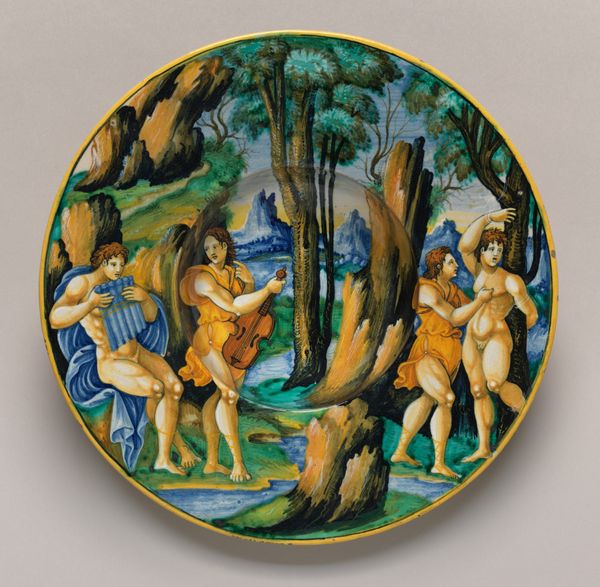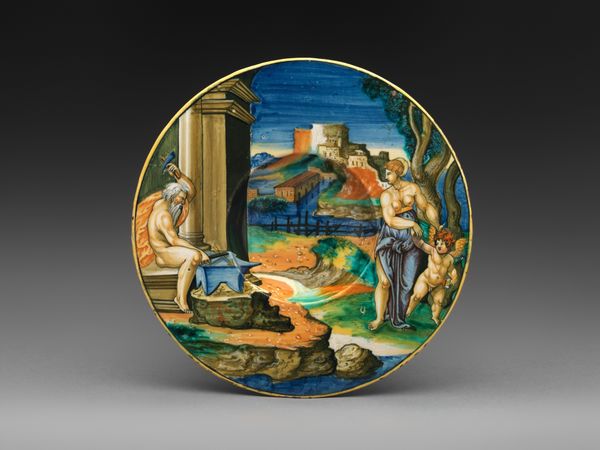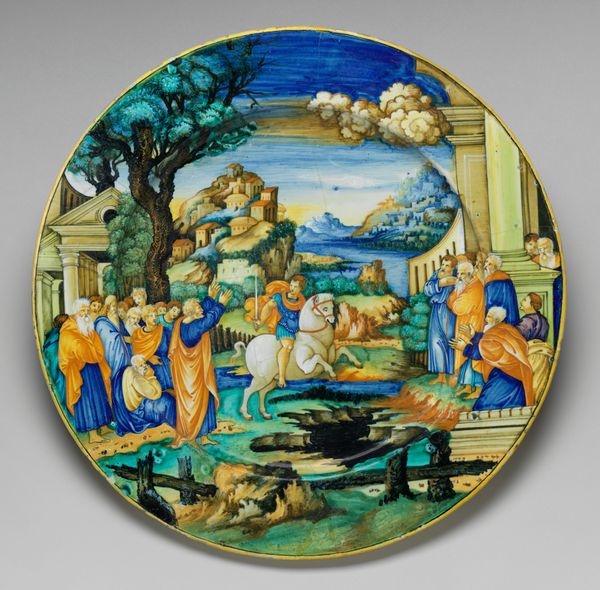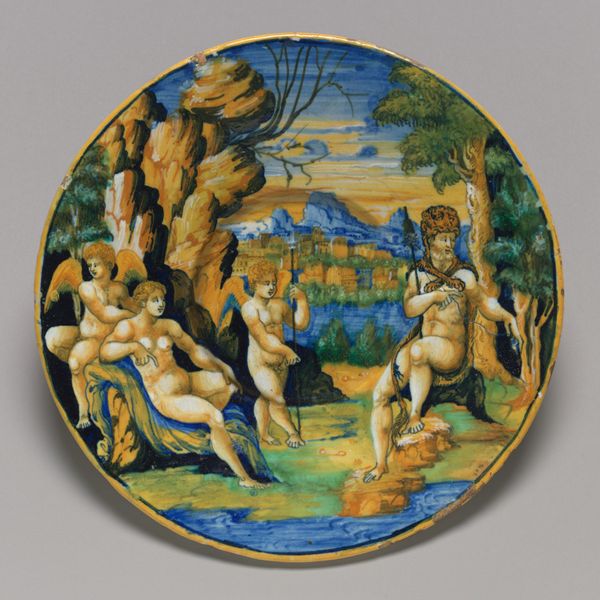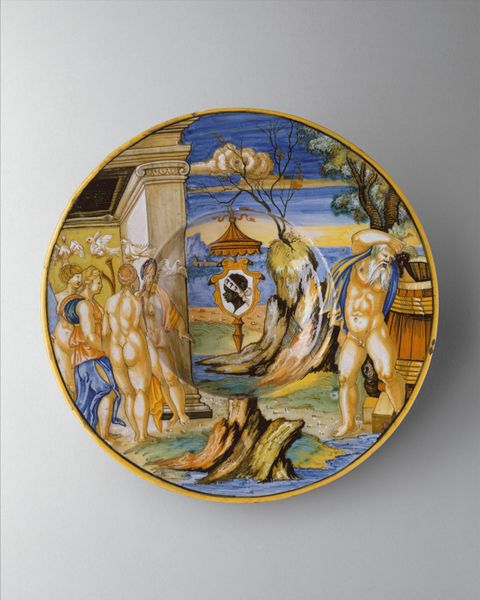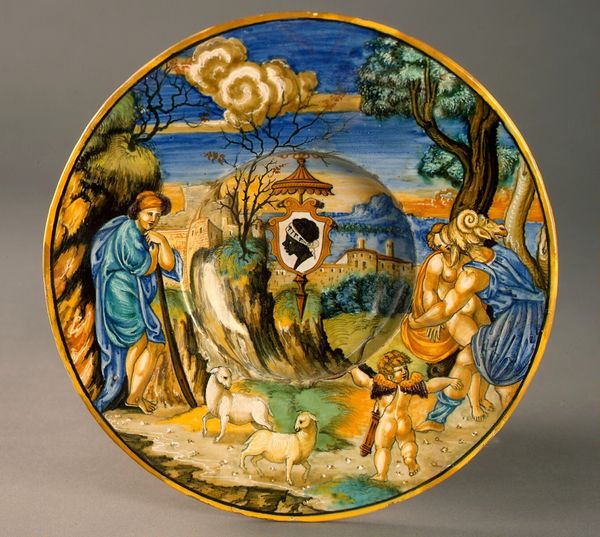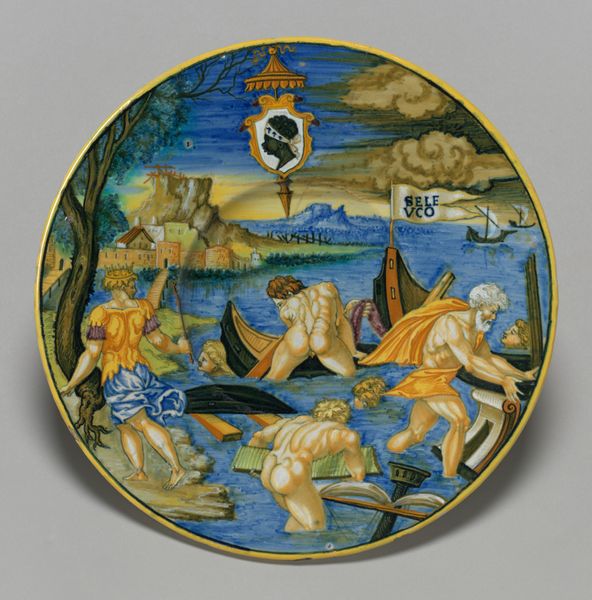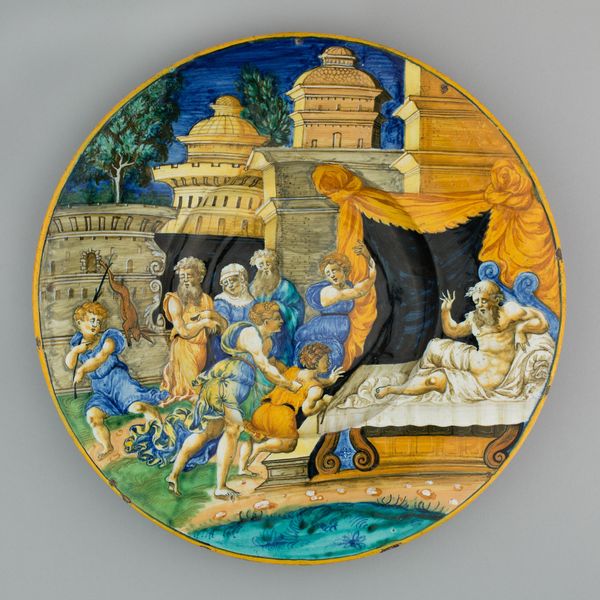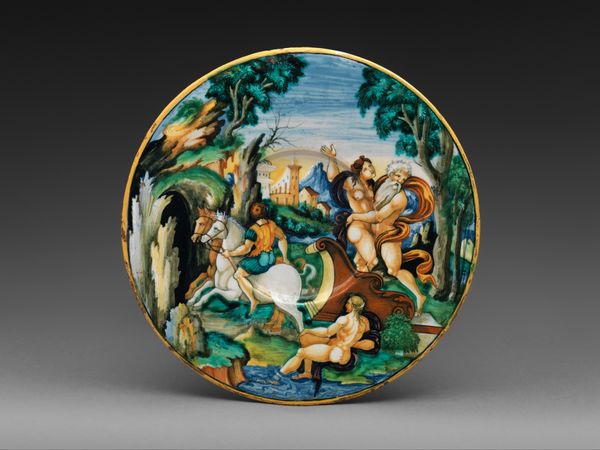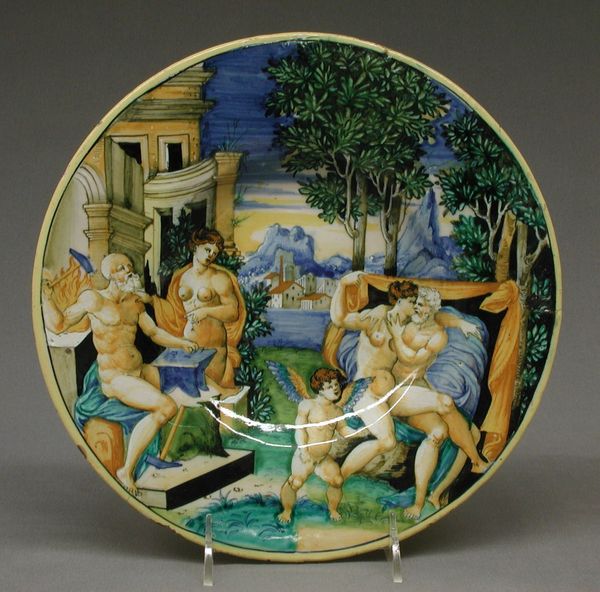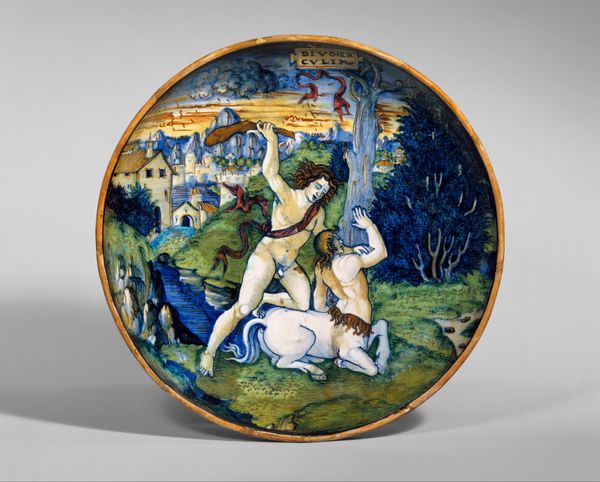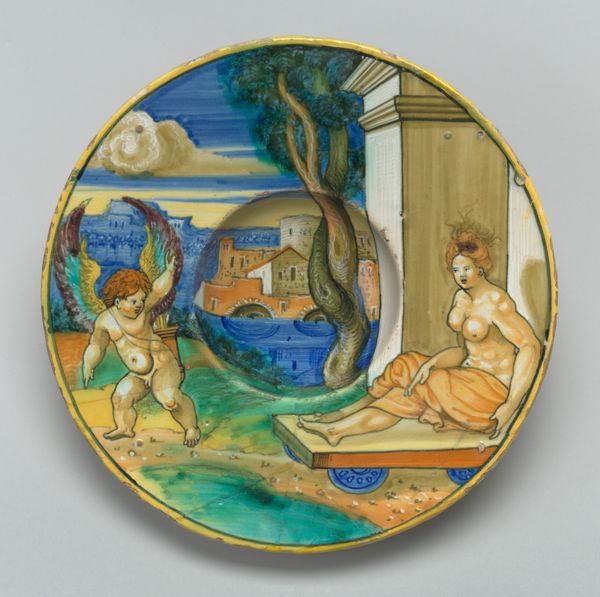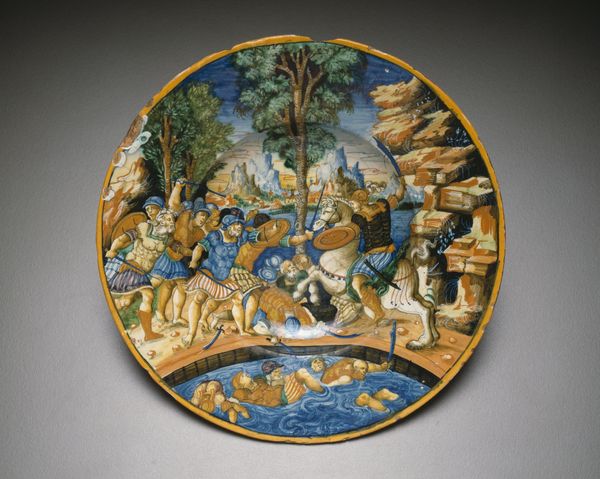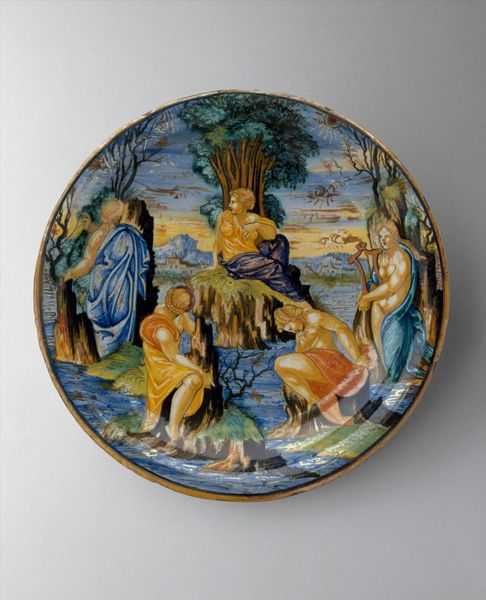
ceramic
#
allegory
#
ceramic
#
mannerism
#
naive art
#
history-painting
#
decorative-art
#
italian-renaissance
Dimensions: overall (height by diameter): 2.5 × 26.1 cm (1 × 10 1/4 in.)
Copyright: National Gallery of Art: CC0 1.0
Here we see a plate depicting Pyramus and Thisbe, made by Francesco Xanto Avelli in the first half of the 16th century. This exquisite piece of Italian Renaissance maiolica draws from Ovid's "Metamorphoses," illustrating a tragic love story. The narrative unfolds with Thisbe, in despair, finding Pyramus dead and choosing to end her life. This plate reflects the Renaissance fascination with classical literature and the era's exploration of human emotions and dramatic storytelling. Avelli translates this literary drama into a visual form, capturing the intense moments of love, despair, and sacrifice. It also mirrors the societal expectations of women. Thisbe's dramatic suicide challenges and reflects on the limited agency women had. The plate becomes a poignant commentary on love, loss, and the constraints placed on individuals, particularly women, within the social fabric of the time.
Comments
No comments
Be the first to comment and join the conversation on the ultimate creative platform.
